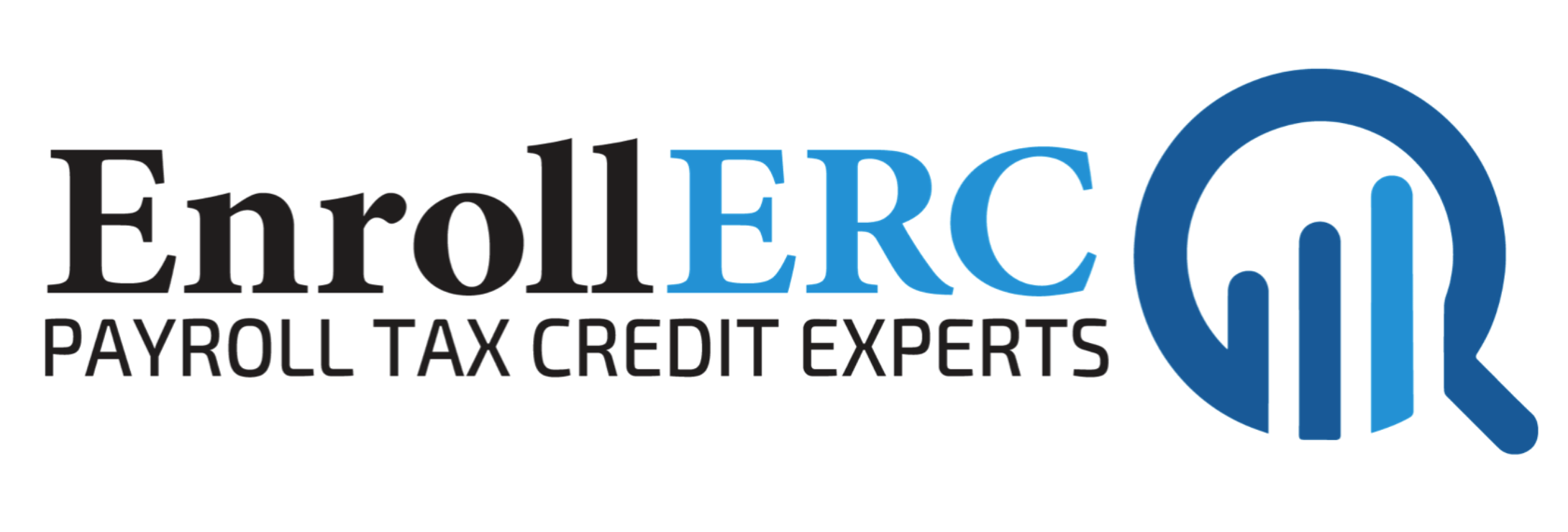Employee Retention Credit Made Simple in Florida
Apply for ERC tax credits up to $26,000 per employee.

See If Your Business Qualifies For ERC Tax Credits in Florida
There’s NO cost to see if you are eligible.
Property Management Company Recovers $1.2 Million
Property Management Company Recovers $1.2 Million
Our Client Results
Client Example
Veterinary Clinic
Received PPP – YES
Total ERC Refund: $780,000
Client Example
Property Manager
Received PPP – YES
Total ERC Refund: $1,200,000
Client Example
Food Distributor
Received PPP – YES
Total ERC Refund: $364,000
Client Example
Commercial Painting
Received PPP – YES
Total ERC Refund: $600,000
Client Example
Fabric Manufacturer
Received PPP – YES
Total ERC Refund: $2,200,000
Client Example
AC Maintenance & Repair
Received PPP – YES
Total ERC Refund: $650,000
What is the
Employee Retention Credit?
The Employee Retention Credit (ERC) is a payroll tax refund born out of the same COVID relief bill as PPP which incentivized businesses who kept employees on payroll during the pandemic. Your business can claim ERC (up to $26,000 per W-2 Employee) even if you received PPP funds. That’s great news for your business!
Eligibility
Who Can Claim the Employee Retention Credit in Florida?
If your business operations were impacted or changed during an applicable calendar quarter due to a COVID-19 related government order.
OR
If your business operations were impacted or changed during an applicable calendar quarter due to a COVID-19 related government order.

Our Process
We Do It All For You!
We are actively working with business owners in every industry to help them claim this lucrative tax break. Our close ties with industry experts allow us to streamline the application process for our clients.
Let Us Help You
Get The Maximum Credits Possible With Our ERC Experts

Ready to Get Help Navigating Economic Stimulus in Florida?
There’s absolutely NO cost or obligation to see if you are eligible.
FAQ
I received a PPP loan, am I disqualified?
I did not have a revenue reduction, am I disqualified?
If your business had to change operations due to governmental orders or if gross receipts declined by 20%, your business likely qualifies. A change in operations could mean extra cleaning or sanitizing, limiting capacity or reducing hours, installing/utilizing protective equipment, temperature checks, or operational impact related to key suppliers or customers. For example, a law firm may have no longer been able to do in-person court hearings or in-person depositions, and cases may have been delayed, even if the firm continued to operate.
What constitutes a partial suspension of operations?
A partial suspension of operations can take many forms. Here are some common examples we see in businesses like yours:
- unable to attend trade shows in-person (“travel or group meetings”)
- had staff go from in-office to work-from-home and had an impact
- retail or restaurant that reduced the number of customers allowed inside
- closed down a department or business unit while other units continued to operate
There are many ways businesses fully or partially suspend operations during each calendar quarter, and we help you document this as part of an engagement.
How long does it take?
Our Experts usually take 1-2 weeks to process your payroll, reconcile any PPP covered period overlap, and build out the attribution schedules. We will then file your forms with the IRS who will take between 8-12 weeks to process your tax credit and send you a check.
Does The ERC Apply to Nonprofits?
Yes. Examples of nonprofit organizations that have already taken advantage of the credit are hospitals, schools, museums, performing arts centers, and churches.
If I'm a large employer, is it worth still claiming the ERC?
Yes. While the definition of qualified wages is limited for large employers, you can still take advantage of the ERC if you paid employees that were either not working or were working reduced hours. Depending on the size of your company and the amount of qualified wages paid during the quarter, the ERC can still be substantial. For 2020, a large employer is more than 100 employees. For 2021, that threshold was increased to 500 employees.
Will the ERC funds run out?
This is not a lending program – tax refunds are issued by the US Treasury. Therefore, all eligible employers will receive the funds.
Do I Have To Repay The ERC Credit?
No. This is not a loan. It’s a refundable tax credit. When we file your ERC claim we request a refund check for you.
Why shouldn't I let my payroll service handle this?
Your Payroll Service does an excellent job of executing the fundamentals of paying your employees, paying your employment taxes and filing your quarterly reports.
But computing your ERTC credits requires visibility into your P&L and PPP forgiveness applications. Not only that, but the complex requirements around eligibility and allocating ERTC credits at the employee-level while accounting for annual and quarterly qualifying wage caps and . . . well, you can probably tell why Payroll Services are not offering to do all of this for you.
The Payroll Services that we’ve worked with so far are happy to provide the payroll registers that we need to perform the allocations. And they are happy to file the Amended Form 941-X with the IRS on our client’s behalf.
But that’s the extent of it.
In fact, most Payroll Services are asking clients to sign an indemnification waiver before submitting a Form 941-X because the Payroll Service can take no responsibility for the accuracy of the ERTC credits you are claiming.
For them to involve themselves in the intricacies of this calculation, it is a liability and beyond their scope of services.
Why can't my tax accountant handle this?
You don’t see a general surgeon for a heart transplant.
Even though a general surgeon is technically licensed to perform a heart transplant – when you need the job done right the first time, by someone who is experienced and has focused their training on the most important thing for you in that moment . . . you see a cardiothoracic surgeon.
When you need income tax return preparation, you see a CPA who is experienced and focused on their continuing education in income taxes.
Just because your dental license permits you to offer orthodontics doesn’t mean you should figure out how to treatment plan orthodontics in your spare time. And especially not when it is the only time you’ll ever do it. And . . . “spare time” . . . really? Who has that?
The same can be said for the CPA that handles your income taxes. He or she most likely only prepares your Federal and State Income Tax Returns. However, ERTC credits are claimed against Employment Taxes on Form 941, which is often handled by your payroll service.
The complexity of the ERTC program is a beast unto itself and every tax accountant we’ve talked to has said they are focused on income taxes and “they’ll figure this out later”.
Let’s face it, your CPA is already in a crunch for time getting returns prepared. They are short-staffed (like most businesses) and it will be many months before they have time to “figure this out”.
Preserve your relationship with your CPA, avoid putting them in the awkward position of “is it done yet?” and let our ERTC experts get the job done right the first time, and quickly.
Ready To
Get Started?
Schedule a free consultation with our team of experts to learn more.
We’ll discuss your eligibility and help estimate your potential tax benefit.
Enroll ERC 2022
